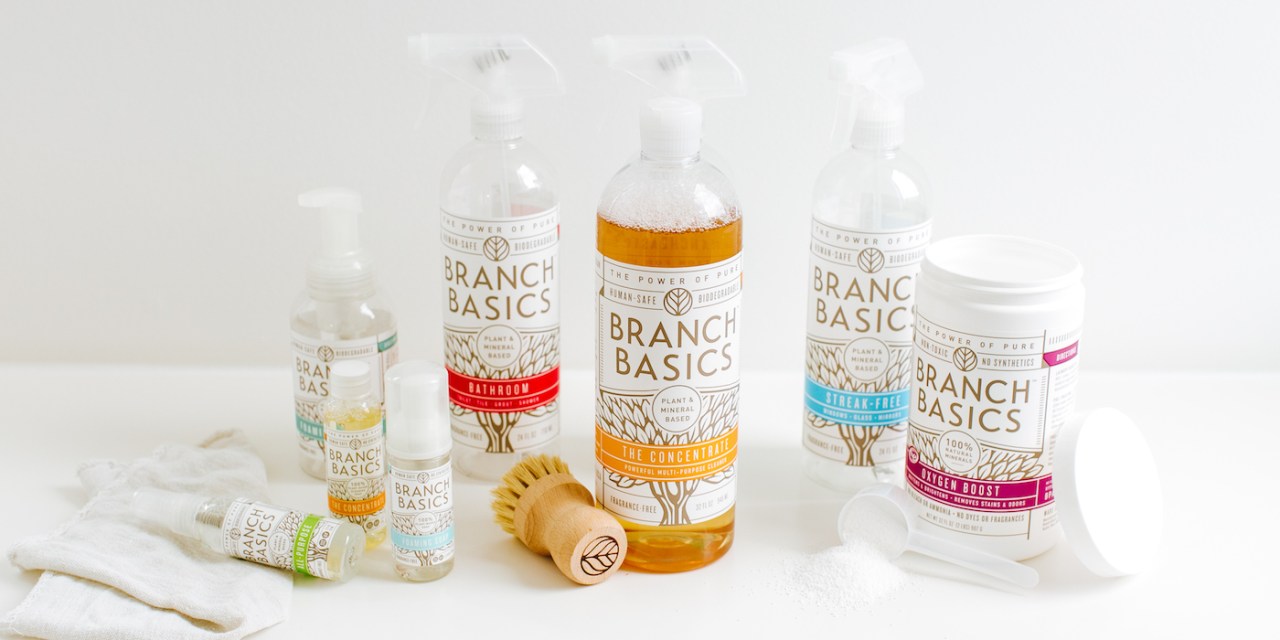After a coronavirus boost, subscription startups are focusing on retention

Branch Basics, makers of a plant-and-mineral based line of cleaning products, normally signs up about 900 new customers a week. In March and April, that number sometimes jumped to 1,400 a week, as more people shoppers in the U.S. started buying household goods in bulk.
At the same time, Branch Basics was struggling to keep products in stock. The company allows customers to purchase products both à la carte, or sign up for a subscription service where they can get cleaning concentrate delivered anywhere from once a month to once every four months. The company decided to list some of its one-time product bundles as out of stock, in order to ensure it would have enough product left for subscribers.
“It is a real disaster if we are pinging people’s credit cards and we won’t have product to ship to them,” said CEO Tim Murphy. “I think we got more subscribers immediately because they though that there was a better chance that if they subscribed, that they would actually get the product.”
Branch Basics isn’t the only subscription startup that saw a bump in new subscribers over the past month or two. Nick Stafford, CEO of DTC dog food brand Ollie, said that May is on track to be the company’s best month ever in terms of revenue. Subscription lawn care service Sunday recorded revenue that was two and a half times the company’s pre-coronavirus projections for those months, according to founder and CEO Coulter Lewis.
This uptick in new customers for subscription services correlates with stay-at-home orders being issued across the U.S. Shoppers appear to have been more willing to try a subscription service if it meant that they were more likely to get certain household goods at the exact time when they needed it, instead of hoping that it would still be in stock by the time they got to the store. Now, the question is whether or not these new subscribers will stick with these products and services even after they have the option of going back to the store. Retention rates depend on not just quality of the product, but also how well these startups are able to keep product in stock, as well as handle an uptick in customer service questions.
Trying to keep the new customers happy
Retention is a metric that all e-commerce startups are constantly striving to improve, but subscription startups especially so. The economics of a subscription model only work when a company isn’t constantly having to spend a ton of marketing money to acquire new customers, to replace the customers who decided to cancel their subscriptions. Blue Apron is a classic example of a company that has suffered because it has failed to consistently grow its subscriber based. While some customers don’t like the rigidness of subscription plans, coronavirus outbreak provides subscription startups the opportunity to prove their value: that they can make it easier for customers to get goods they need consistently on time.
“We are getting a lot of customers who I hypothesize are actually new to subscriptions,” Stafford said. Stafford said that Ollie started to see an acceleration in new customers in various cities and states that correlated with which ones were starting to issue stay at home orders in March and April. He said that Ollie,”hasn’t seen a reduction in online search capacity as a result of markets opening up,” which gives the company hope that new customers aren’t just using the service until they feel comfortable returning to the pet supply store again.
Ad position: web_incontent_pos1
The executives who spoke with Modern Retail said that for the most, part, it’s too early to tell if these new subscribers are behaving any differently than ones they’ve acquired before the coronavirus. They’re looking at the same KPIs they always do — net promoter scores, average order value, lifetime value to customer acquisition costs ratio — in order to determine how successfully they are retaining customers. But, as the coronavirus outbreak continues, it presents a few additional challenges in their quest to keep churn as low as possible.
One is that, depending on if the coronavirus outbreak worsens in any areas near their factories or fulfillment centers, startups could face supply chain issues that would make it difficult to deliver products to its subscribers on time. Lewis said that while Sunday did buy up additional inventory in preparation for the influx of demand, the company quickly blew through that. A number of the company’s suppliers and 3PLs have also struggled with labor shortages. As a result, Sunday currently has a banner notification when customers checkout telling them to expect one week shipping delays.
Sunday customers pay for the subscription on an annual basis, so a one-time shipping delay likely won’t drastically hurt the company’s retention rates. But, shipping delays could hurt subscription startups that have to get product to customers on a more frequent basis.
Additionally, Lewis also estimates that Sunday is also seeing a 50% increase in outreach to its customer service team. “That is something we could potentially attribute to covid — people are home, they have the time, they want to dig into this, they want to get growing,” Lewis said.
Stafford said that Ollie has also seen an uptick in people reaching out to its customer service teams, often to change the cadence of their scheduled deliveries. The company rolled out a new SMS service last month, in part to give people more ways to manage their account and subscriptions.
Ad position: web_incontent_pos2
Lewis said that while the customer service team is currently working through a backlog right now, “it is the best sign we can see as a business when customers are reaching out to us and wanting to engage more. I think if we think about this cohort and retention, that’s the best indicator we could have.”

